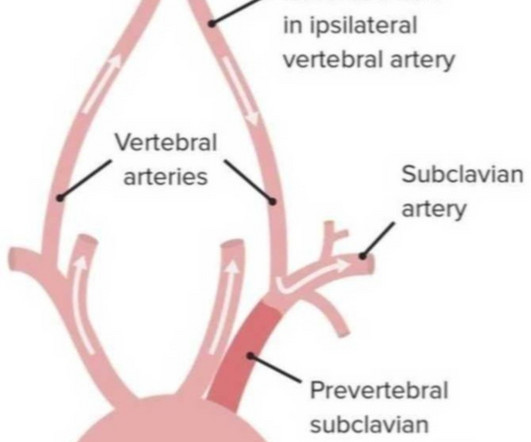Subclavian Steal Syndrome
Vascular Physician
MARCH 25, 2022
Type I – Antegrade vertebral flow is reduced Type II – Antegrade flow during diastolic phase and retrograde flow during systolic phase Type III – Permanent retrograde vertebral flow Diagnosis Diagnosis can be made using imaging such as duplex ultrasound of the subclavian and vertebral arteries.














Let's personalize your content